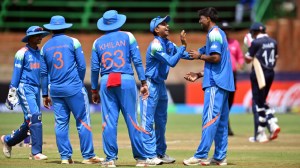Struggle with words
Definition of minority has proved a herculean task which has eluded legal luminaries and jurists. The 1992 UN Declaration on Minorities does...

Definition of minority has proved a herculean task which has eluded legal luminaries and jurists. The 1992 UN Declaration on Minorities does not attempt a definition. The Framework Convention for the Protection of National Minorities which entered into force in 1998 has also not ventured a definition. A workable test for determining majority or minority status could be who calls the shots in a community at a given time. At most times it is the numerically superior group. However in certain situations, like during the British colonial rule in India and the South African apartheid regime, a group with far greater numbers than the ruling regime may still be a minority because of its non-dominant position. By applying this test of non-dominance several groups may be included such as women in several countries, tribals in various districts, migrant workers, gypsies, et al.
Obscenity has defied an acceptable definition because of the subjective element involved in it. Often one man8217;s lyric is another8217;s obscenity. A striking example is Nabokov8217;s novel Lolita. A New Zealand Court branded it indecent whereas Prime Minister Nehru thought otherwise and directed the Customs to permit clearance of the books which they had seized. Judges after valiant attempts have thrown up their hands in despair and admitted they cannot define obscenity but recognise it when they see it. Apparently obscenity like beauty lies in the eyes or whatever else of the beholder. Al Edwards who recently initiated legislation in the State of Texas to outlaw 8220;overtly sexually suggestive8221; performances by high school girls acknowledged the difficulty of defining bawdy performances in the legislation. He adopted the familiar stance that 8220;any adult that has been involved with sex in their lives, they know it when they see it8221;. What about celibate!
Despite several meetings and discussions there has been no UN or internationally acceptable definition of terrorism. The anxiety is to prevent genuine movements for liberation and self-determination from coming within the wide net of terrorism. Precision in definition is essential because severe criminal sanctions could be imposed for terrorist activities. The 8216;cannot define but recognise it8217; doctrine would be most inappropriate, indeed dangerous, in case of terrorism. At the end of the day, one can sigh with TS Eliot:
Words strain
Crack and sometimes break, under the burden,
Under the tension, slip, slide, perish,
Decay with imprecision 8230; Trying to learn to use words, and every attempt
Is a wholly new start, and a different kind of failure8221;
Book browsing
Browsing through books in my library at home8212;more than half of which I have not fully read despite numerous resolutions8212;I made a delightful discovery. Tucked away in a little corner was, Rudyard Kipling8217;s reminiscences on his seventieth birthday, Something of Myself. The first chapter, 8216;A Very Young Person8217;, reveals his early years as a child in Bombay, 8216;8216;the memory of early morning walks to the Bombay fruit market with my ayah and later with my sister in her perambulator, and of our returns with our purchases piled high on the bows of it. Our ayah was a Portuguese Roman Catholic who would pray8212;I beside her8212;at a wayside Cross. Meeta, my Hindu bearer, would sometimes go into little Hindu temples where, being below the age of caste, I held his hand and looked at the dimly-seen, friendly Gods.8217;8217;
Kipling8217;s other impressions of Bombay are of 8216;8216;far-going Arab dhows on the pearly waters, and gaily dressed Parsees wading out to worship the sunset.8217;8217; He admits that he knew nothing about the Parsees or their creed, nor did he know that near his little house were the Towers of Silence, 8216;8216;where their Dead are exposed to the waiting vultures on the rim of the towers, who scuffle and spread wings when they see the bearers of the Dead below.8217;8217; This outdated and revolting practice of disposal of the dead bodies of the Parsees still persists and surprisingly finds ardent support from some sections of this progressive community.
Kipling8217;s poem 8216;If8217;, is my perennial favourite. Kipling says it contains 8216;8216;counsels of perfection most easy to give. 8230;Schools and places where they teach, book them for the suffering Young8212;which did me no good with the Young when I met them later. 8216;Why did you write that stuff? I8217;ve had to write it out twice as an impot8217;.
Lovers of literature are glad that Kipling wrote 8216;that stuff8217;. My usual quotes from the poem are:
8220;If you can talk with crowds and keep your virtue,
Or walk with kings -nor lose the common touch,
If you can fill the unforgiving minute
With sixty seconds8217; worth of distance run, Yours is the Earth and everything that8217;s in it, And8212;which is more8212;you8217;ll be a Man, my son!8221;
A difficult task indeed.
- 01
- 02
- 03
- 04
- 05































